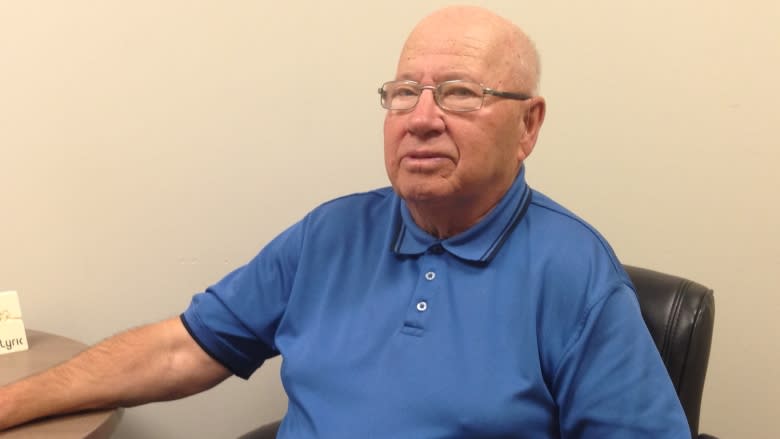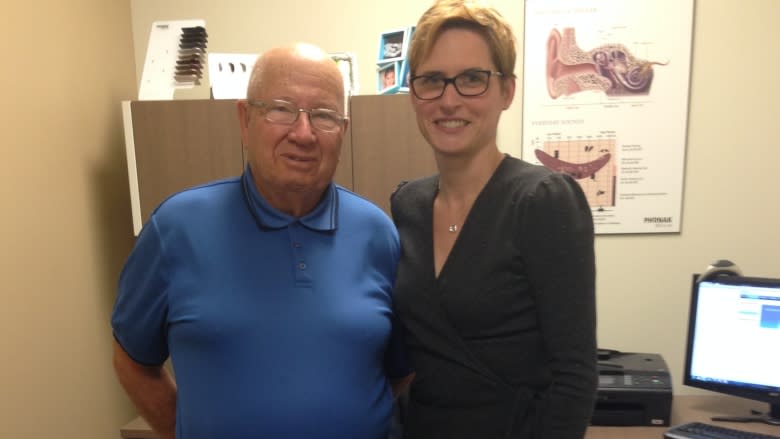Walsh: There's no cure for tinnitus but for some there can be relief
Two years ago Steven Best, 78, noticed a ringing in his ear.
"It would start off like a little buzzing sound. It'd start off with a low sound, and then when you had nothing to counteract it, it would get worse and worse and worse, 'til it would get to the point where you couldn't bear it. And it was really, really annoying."
Turns out that ringing is tinnitus.
According to the Canadian Hearing Society, it affects somewhere between 10 and 15 per cent of Canadians.
What is tinnitus?
"Tinnitus is a ringing, roaring, hissing or buzzing in one or both ears. Some people it comes and goes, some people it's there all the time. We've all probably experienced tinnitus once," said Erin Squarey, Best's audiologist.
"We go to a club or a bar or a concert, we come out and our ears are ringing. Well, that's tinnitus."
The causes
"Tinnitus is typically caused by hearing loss and/or stress. There are other things that can trigger it such as caffeine and salt intake and daily aspirins. There are a number of medications that can exacerbate it," said Squarey.
In Best's case, having tinnitus completely affected how he went about his day to day. At age 76, he stopped going out.
"I'd avoid going to places where there was crowds because going to a bingo game or going to a card game, you know, where people all talking and everything … is shocking."
Squarey said Best is a classic example of someone who suffers from tinnitus.
"You know, of finding it bothersome and the more that it bothered him, the louder it became," she said.
For others, without treatment, the sound can be too much to bear.
"I have had people that have taken their life, so it is for some people quite severe," said Squarey.
Still hope
Luckily for people like Best, there is relief out there. No cure, but relief nonetheless.
Best's treatment comes in the form of a special hearing aid.
"The way these particular hearing aids work is you have a special program. In this hearing aids it's called a Zen program, which is almost like wind chimes," said Squarey.
"It activates the music area of the brain. By activating the music area of the brain, that's a pleasant positive experience, you break the feedback loop."
People can even link their hearing aids with their smartphones and to choose different sounds.
In Best's hearing aid, it's the sound of the ocean that brings him peace.
"What they done for me is just unbelievable, and I recommend it to anyone," said Best.
"Anyone who is suffering from this disease, please do what you got to do. Go to your specialist and they can fix you up now and take care of that noise in your ear, and you can have a more pleasant life."



